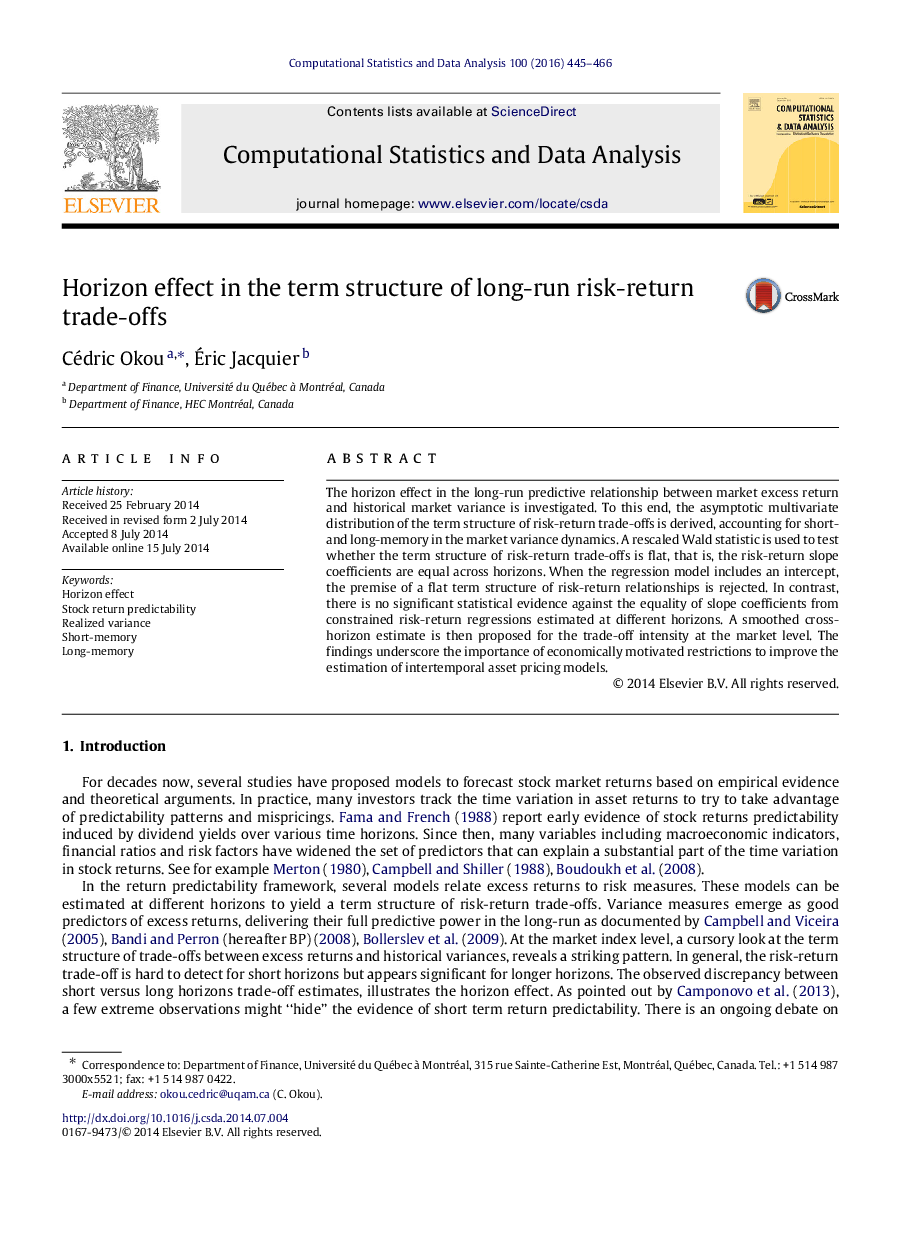| Article ID | Journal | Published Year | Pages | File Type |
|---|---|---|---|---|
| 6869147 | Computational Statistics & Data Analysis | 2016 | 22 Pages |
Abstract
The horizon effect in the long-run predictive relationship between market excess return and historical market variance is investigated. To this end, the asymptotic multivariate distribution of the term structure of risk-return trade-offs is derived, accounting for short- and long-memory in the market variance dynamics. A rescaled Wald statistic is used to test whether the term structure of risk-return trade-offs is flat, that is, the risk-return slope coefficients are equal across horizons. When the regression model includes an intercept, the premise of a flat term structure of risk-return relationships is rejected. In contrast, there is no significant statistical evidence against the equality of slope coefficients from constrained risk-return regressions estimated at different horizons. A smoothed cross-horizon estimate is then proposed for the trade-off intensity at the market level. The findings underscore the importance of economically motivated restrictions to improve the estimation of intertemporal asset pricing models.
Related Topics
Physical Sciences and Engineering
Computer Science
Computational Theory and Mathematics
Authors
Cédric Okou, Ãric Jacquier,
